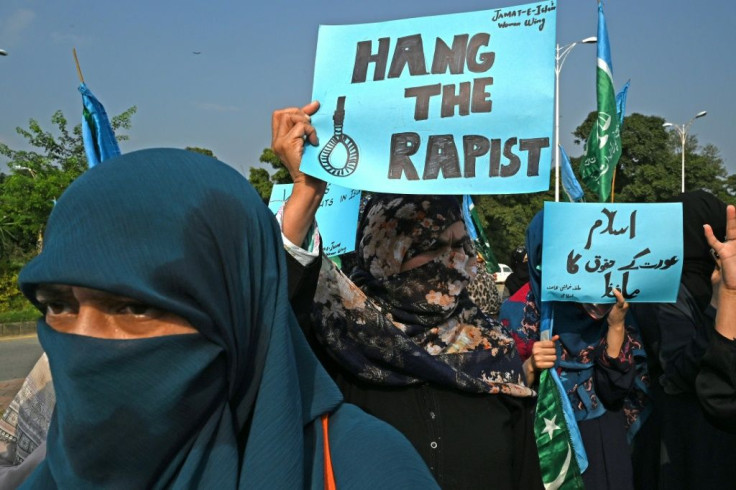Uproar After 'Victim Blaming' In Pakistan Gang Rape Case
A Pakistani police chief faced a growing backlash Friday after he seemed to blame the victim in a gang rape case because she was driving at night without a male companion.
The controversy started after a woman said she was assaulted and raped by multiple men in front of her two children when her car ran out of fuel near the eastern city of Lahore late on Wednesday.
Speaking to media, Lahore police chief Umar Sheikh repeatedly chided the victim for driving at night without a man, adding that no one in Pakistani society would "allow their sisters and daughters to travel alone so late".
Sheikh went on to say the woman -- a resident of France -- probably "mistook that Pakistani society is just as safe" as her home country.
Human rights minister Shireen Mazari said his remarks were unacceptable.
"Nothing can ever rationalise the crime of rape," she added.
Protests were held in cities across Pakistan on Friday, and Sheikh's comments sparked demands for his resignation.

"We don't want him in office," protester Shaheena Khan said at a rally in Islamabad.
"We want security from the police and the government. It is their job".
Lawyer and woman's rights activist Khadija Siddiqi told AFP that Sheikh's comments were part of an unfortunate and "very rampant" culture of victim blaming in Pakistan.
Much of conservative Pakistan lives under a patriarchal code of "honour" that systematises the oppression of women by preventing them from, for example, choosing their own husband or working outside the home.
"We are angry, we demand his removal and we demand his apology," said Nighat Dad, a women's rights activist and one of the organisers of an annual women's rights march in Lahore.
Activists have denounced pervasive, sometimes deadly violence by men -- usually male relatives -- against women who break those taboos.
Around a thousand Pakistani women are murdered in honour killings each year -- in which the victim, normally a woman, is killed by a relative for bringing shame on the family.
© Copyright AFP 2024. All rights reserved.





















